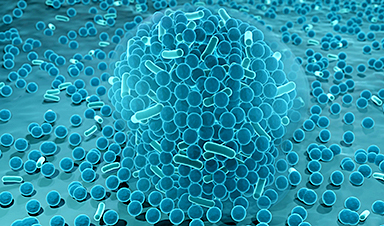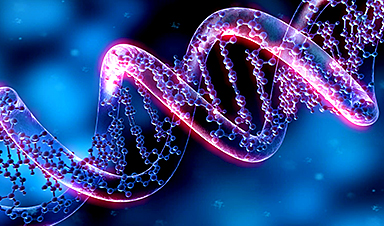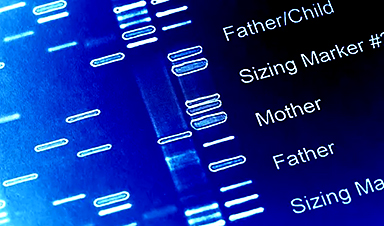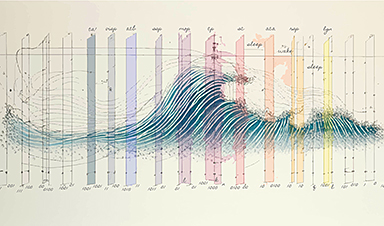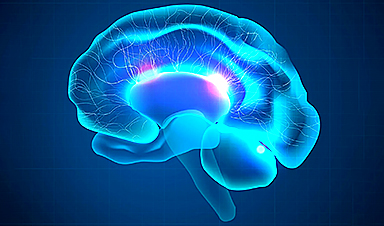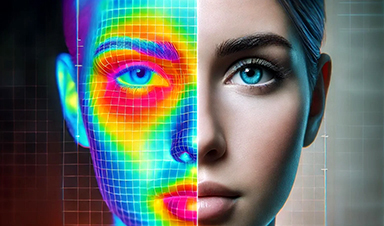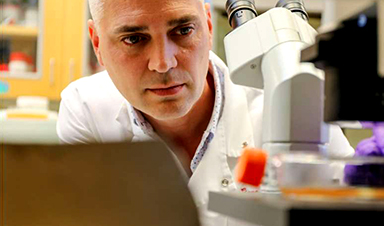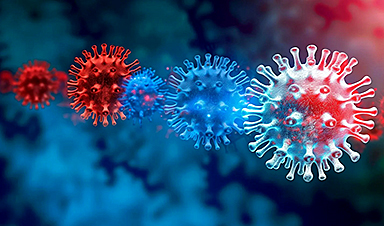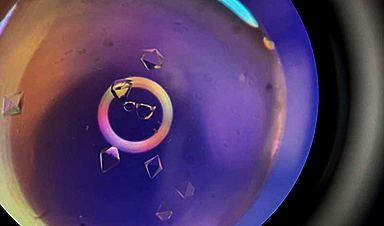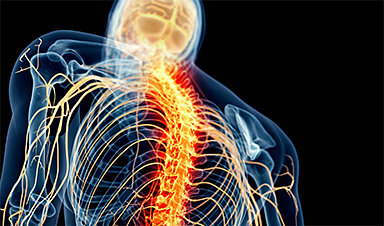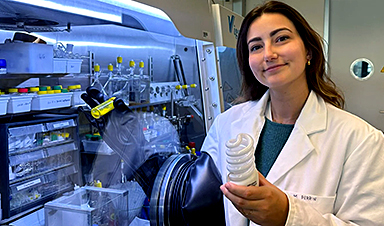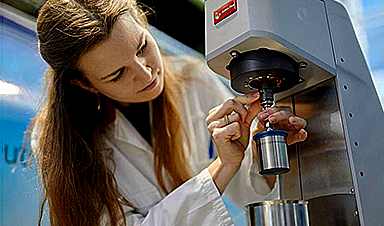A study from Cedars-Sinai’s Smidt Heart Institute suggests that immune system dysfunction could be causing long COVID-19. The study found that patients with long COVID-19 produced antibodies against the virus for an extended period after vaccination, with especially high levels of nucleocapsid antibodies. The implications of this sustained immune response are still unclear, and researchers are now seeking a definitive biomarker for diagnosing and understanding long COVID-19.
Findings show people with long COVID-19 respond differently to COVID-19 vaccines.
A new study by investigators from the Smidt Heart Institute at Cedars-Sinai suggests long COVID-19 might be caused by a dysfunction of the immune system.
The study, published in the journal BMC Infectious Diseases, found that after people with long COVID-19 received the COVID-19 vaccine, they produced antibodies against the virus that causes COVID-19 for months longer than expected.
“There’s general consensus that some level of aberrant immune response happens in long COVID-19, and this study adds to the evidence to suggest this is true,” said Catherine Le, MD, co-director of the Cedars-Sinai COVID-19 Recovery Program and a senior author of the study.
Long COVID-19, a condition in which people experience COVID-19-related symptoms three months or more after initial infection with the virus that causes COVID-19, is estimated to affect 65 million people worldwide. Common symptoms include fatigue, shortness of breath, and cognitive dysfunction such as confusion and forgetfulness. Some symptoms can have debilitating effects.
To study the immune response of people with long COVID-19, investigators analyzed blood samples from 245 people diagnosed with long COVID-19 and 86 people who had COVID-19 and fully recovered. All the study participants had received either one or two doses of a COVID-19 vaccine regimen.
“We examined one part of the immune system response, the production of antibodies, which is mediated by immune cells called B-cells,” Le explained.
Specifically, the investigators looked at two types of antibodies that attack the virus that causes COVID-19. One of these is called the spike protein antibody, which attacks a protein on the exterior of the virus. The other is the nucleocapsid antibody, which attacks the part of the virus that allows it to replicate.
The investigators found that people who were diagnosed with long COVID-19 produced higher levels of spike protein and nucleocapsid antibodies than people without long COVID-19. Eight weeks after receiving a dose of the COVID-19 vaccine, antibody levels in people without long COVID-19 began to decrease, as was expected. People with long COVID-19, however, continued to have elevated antibody levels, especially of nucleocapsid antibodies.
“What you would expect after getting a COVID-19 vaccination is a jump in your spike protein antibody levels, but you wouldn’t expect a significant increase in nucleocapsid antibody levels,” said Susan Cheng, MD, MPH, the Erika J. Glazer Chair in Women’s Cardiovascular Health and Population Science, director of the Institute for Research on Healthy Aging in the Department of Cardiology at the Smidt Heart Institute, and a senior author of the study. “You would also expect these levels to eventually decrease and not persist for so long after vaccination.”
Although this study shows that long COVID-19 affects the immune system, it’s too soon to draw firm conclusions from these findings, according to the study’s authors.
“Theoretically, the production of these antibodies could mean that people are more protected from infection,” Le said. “We also need to investigate if the elevated immune response corresponds with severity or number of long COVID-19 symptoms.”
Investigators are continuing to study blood samples from people with long COVID-19. They are hoping to identify a measurable molecule that could be used to diagnose long COVID-19 and better understand the biological processes that cause it.
News
Breakthrough in Antimicrobial Technology with Cinnamon-Based Nanokiller
The need for innovative antimicrobial agents has become increasingly urgent due to the rise of antibiotic-resistant pathogens and the persistent threat of infections acquired during hospital stays. Traditional antibiotics and antiseptics are often ineffective [...]
The Silent Battle Within: How Your Organs Choose Between Mom and Dad’s Genes
Research reveals that selective expression of maternal or paternal X chromosomes varies by organ, driven by cellular competition. A new study published today (July 26) in Nature Genetics by the Lymphoid Development Group at the MRC [...]
Study identifies genes increasing risk of severe COVID-19
Whether or not a person becomes seriously ill with COVID-19 depends, among other things, on genetic factors. With this in mind, researchers from the University Hospital Bonn (UKB) and the University of Bonn, in [...]
Small regions of the brain can take micro-naps while the rest of the brain is awake and vice versa
Sleep and wake: They're totally distinct states of being that define the boundaries of our daily lives. For years, scientists have measured the difference between these instinctual brain processes by observing brain waves, with [...]
Redefining Consciousness: Small Regions of the Brain Can Take Micro-Naps While the Rest of the Brain Is Awake
The study broadly reveals how fast brain waves, previously overlooked, establish fundamental patterns of sleep and wakefulness. Scientists have developed a new method to analyze sleep and wake states by detecting ultra-fast neuronal activity [...]
AI Reveals Health Secrets Through Facial Temperature Mapping
Researchers have found that different facial temperatures correlate with chronic illnesses like diabetes and high blood pressure, and these can be detected using AI with thermal cameras. They highlight the potential of this technology [...]
Breakthrough in aging research: Blocking IL-11 extends lifespan and improves health in mice
In a recent study published in the journal Nature, a team of researchers used murine models and various pharmacological and genetic approaches to examine whether pro-inflammatory signaling involving interleukin (IL)-11, which activates signaling molecules such [...]
Promise for a universal influenza vaccine: Scientists validate theory using 1918 flu virus
New research led by Oregon Health & Science University reveals a promising approach to developing a universal influenza vaccine—a so-called "one and done" vaccine that confers lifetime immunity against an evolving virus. The study, [...]
New Projects Aim To Pioneer the Future of Neuroscience
One study will investigate the alterations in brain activity at the cellular level caused by psilocybin, the psychoactive substance found in “magic mushrooms.” How do neurons respond to the effects of magic mushrooms? What [...]
Decoding the Decline: Scientific Insights Into Long COVID’s Retreat
Research indicates a significant reduction in long COVID risk, largely due to vaccination and the virus’s evolution. The study analyzes data from over 441,000 veterans, showing lower rates of long COVID among vaccinated individuals compared [...]
Silicon Transformed: A Breakthrough in Laser Nanofabrication
A new method enables precise nanofabrication inside silicon using spatial light modulation and laser pulses, creating advanced nanostructures for potential use in electronics and photonics. Silicon, the cornerstone of modern electronics, photovoltaics, and photonics, [...]
Caught in the actinium: New research could help design better cancer treatments
The element actinium was first discovered at the turn of the 20th century, but even now, nearly 125 years later, researchers still don't have a good grasp on the metal's chemistry. That's because actinium [...]
Innovative Light-Controlled Drugs Could Revolutionize Neuropathic Pain Treatment
A team of researchers from the Institute for Bioengineering of Catalonia (IBEC) has developed light-activated derivatives of the anti-epileptic drug carbamazepine to treat neuropathic pain. Light can be harnessed to target drugs to specific [...]
Green Gold: Turning E-Waste Into a Treasure Trove of Rare Earth Metals
Scientists are developing a process inspired by nature that efficiently recovers europium from old fluorescent lamps. The approach could lead to the long-awaited recycling of rare earth metals. A small molecule that naturally serves [...]
Cambridge Study: AI Chatbots Have an “Empathy Gap,” and It Could Be Dangerous
A new study suggests a framework for “Child Safe AI” in response to recent incidents showing that many children perceive chatbots as quasi-human and reliable. A study has indicated that AI chatbots often exhibit [...]
Nanoparticle-based delivery system could offer treatment for diabetics with rare insulin allergy
Up to 3% of people with diabetes have an allergic reaction to insulin. A team at Forschungszentrum Jülich has now studied a method that could be used to deliver the active substance into the [...]

